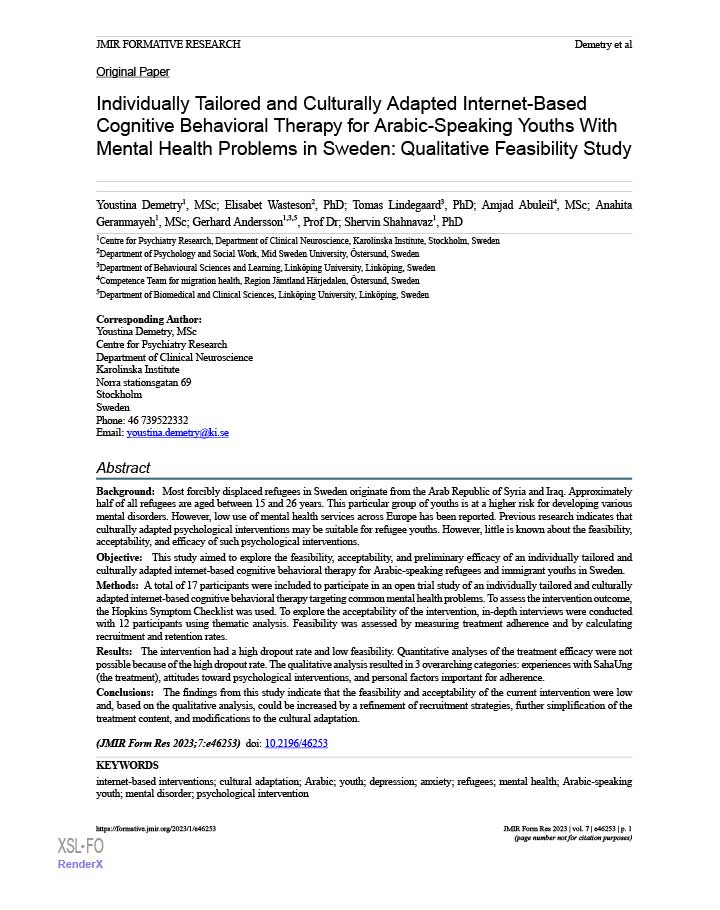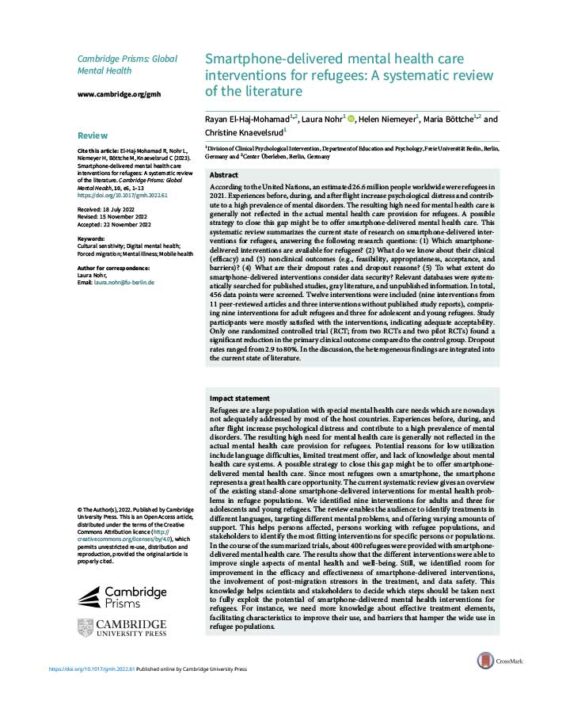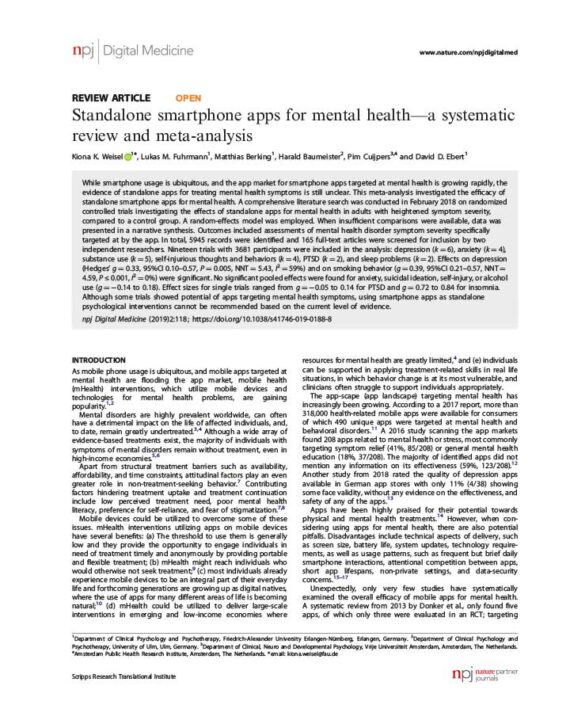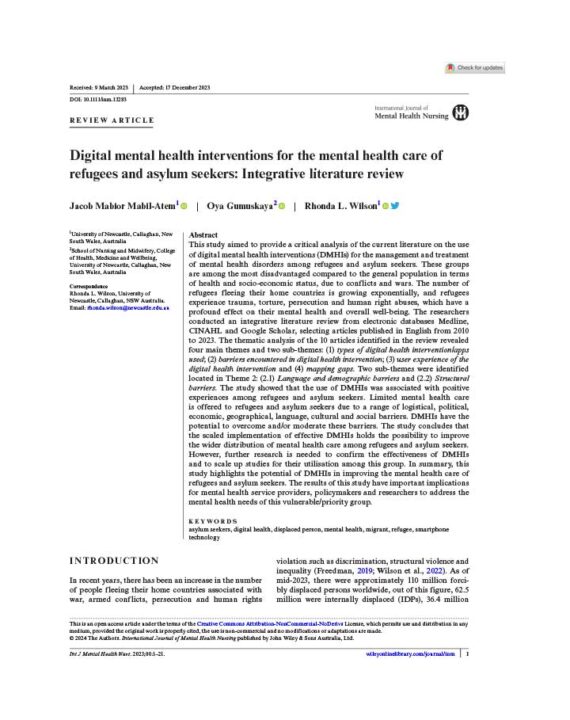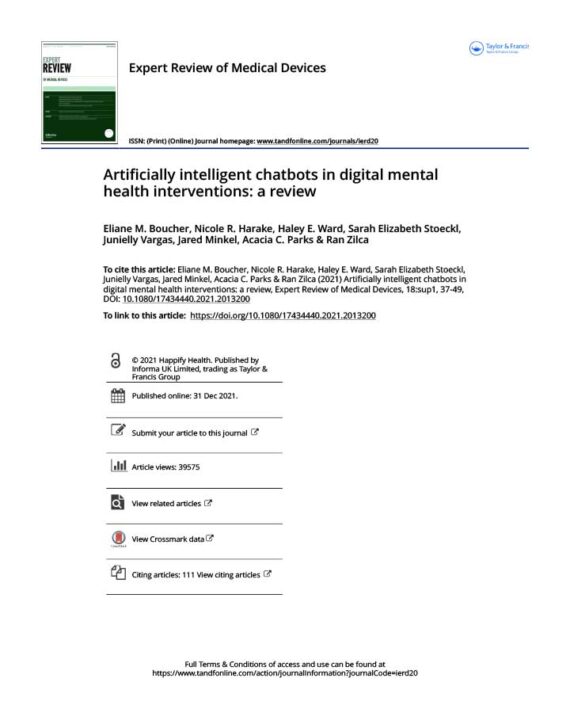This study aimed to explore the feasibility, acceptability, and preliminary efficacy of an individually tailored and culturally adapted internet-based cognitive behavioral therapy for Arabic-speaking refugees and immigrant youths in Sweden. The intervention had a high dropout rate and low feasibility. Quantitative analyses of the treatment efficacy were not possible because of the high dropout rate. The findings from this study indicate that the feasibility and acceptability of the current intervention were low and, based on the qualitative analysis, could be increased by a refinement of recruitment strategies, further simplification of the treatment content, and modifications to the cultural adaptation.
information
Individually Tailored and Culturally Adapted Internet-Based Cognitive Behavioral Therapy for Arabic-Speaking Youths With Mental Health Problems in Sweden: Qualitative Feasibility Study
Information
English
2024
pdf
Translations
No translations available


